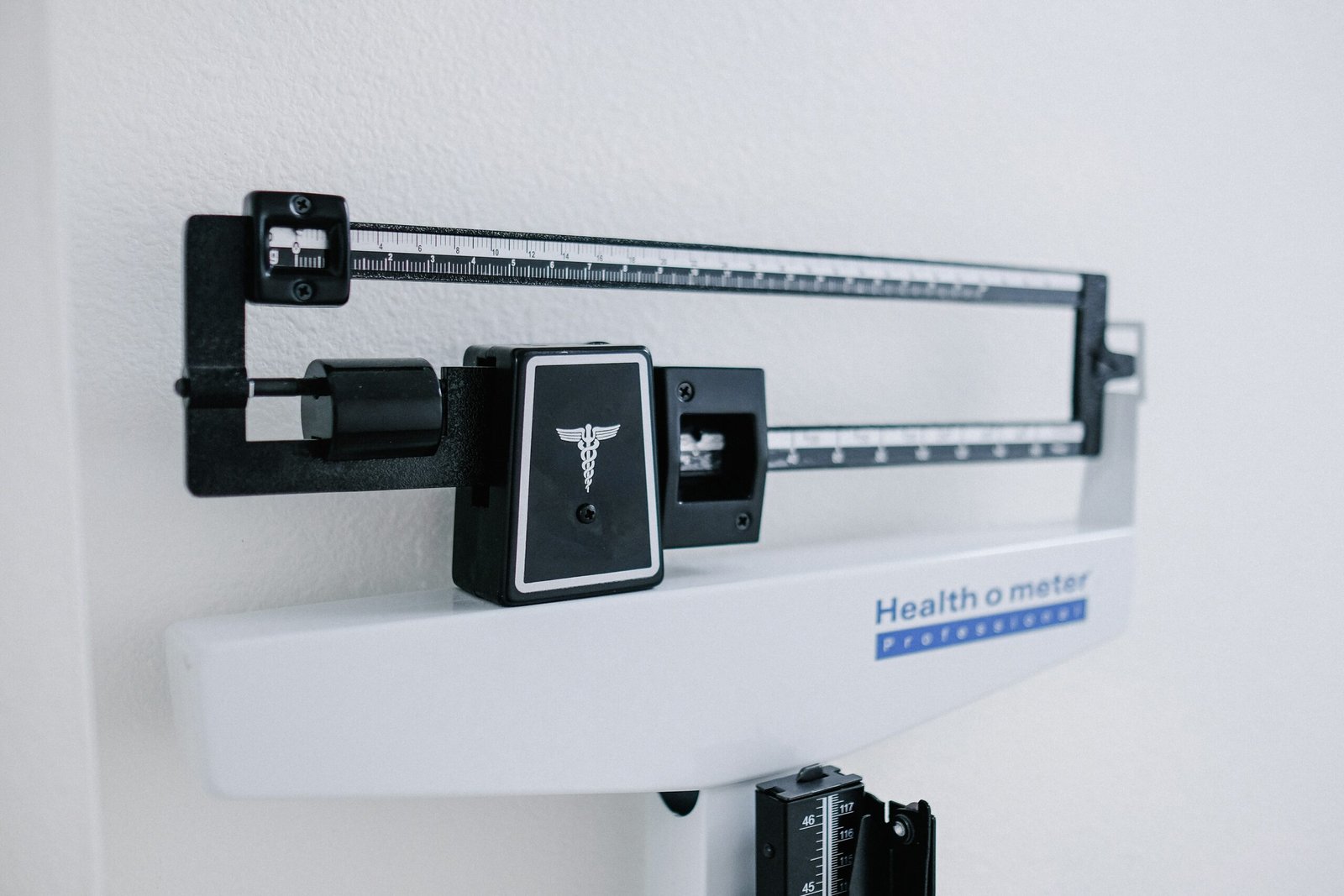
Introduction to Pregnancy Nutrition
Proper nutrition during pregnancy is crucial for the health and well-being of both the mother and the developing baby. A balanced diet, rich in essential nutrients, supports fetal growth, maternal health, and can even influence the long-term health outcomes for the child. Understanding the importance of pregnancy nutrition helps expectant mothers make informed dietary choices, ensuring an optimal environment for the baby’s development.
During pregnancy, the body’s nutritional needs increase to support the growth and development of the baby. Key nutrients such as folic acid, iron, calcium, and protein become particularly important. For example, folic acid helps prevent neural tube defects, while iron supports the increased blood volume and prevents anemia. Calcium is essential for the development of strong bones and teeth, and protein is crucial for the growth of fetal tissues and organs.
In addition to focusing on essential nutrients, it is equally important to be aware of foods to avoid. Certain foods can pose risks to both the mother and the baby. For instance, raw or undercooked meats and fish, unpasteurized dairy products, and certain types of fish high in mercury should be avoided. These foods can carry harmful bacteria or toxins that could lead to complications during pregnancy.
Meal planning is another key aspect of pregnancy nutrition. It helps ensure that the diet is balanced and that all nutrient needs are met. Planning meals ahead allows for the inclusion of a variety of healthy foods, reducing the likelihood of missing out on important nutrients. It also helps manage cravings and maintain a healthy weight gain throughout the pregnancy.
This blog post will delve deeper into these critical areas, providing valuable diet tips for a healthy pregnancy. We will explore essential nutrients in detail, discuss foods to avoid, and offer practical meal planning strategies to support a balanced and nutritious diet. By prioritizing proper nutrition, expectant mothers can significantly contribute to their own health and the health of their developing baby.
Essential Nutrients for Pregnancy
Proper nutrition is fundamental during pregnancy, as it significantly influences both fetal development and maternal health. Ensuring an adequate intake of essential nutrients can help mitigate many pregnancy-related complications. Among the critical vitamins and minerals, folic acid, iron, calcium, and omega-3 fatty acids hold paramount importance.
Folic Acid: Folic acid, a B-vitamin, is vital for preventing neural tube defects, which affect the brain and spinal cord of the developing fetus. The recommended daily amount for pregnant women is 600 micrograms. Natural sources of folic acid include leafy green vegetables, citrus fruits, beans, and fortified cereals.
Iron: Iron is essential for producing hemoglobin, the protein in red blood cells that carries oxygen to the body’s tissues. During pregnancy, a woman’s blood volume increases, necessitating a higher iron intake to prevent anemia and ensure sufficient oxygen supply for both mother and baby. The advised daily intake is 27 milligrams. Red meat, poultry, fish, lentils, and spinach are excellent sources of iron.
Calcium: Calcium is crucial for the development of the baby’s bones and teeth, as well as for maintaining the mother’s bone density. Pregnant women should aim for 1,000 milligrams of calcium daily. Dairy products, such as milk, cheese, and yogurt, along with fortified plant-based milks, leafy greens, and almonds, are rich in calcium.
Omega-3 Fatty Acids: Omega-3 fatty acids, particularly DHA (docosahexaenoic acid), are critical for the development of the fetal brain and eyes. Pregnant women are advised to consume at least 200 milligrams of DHA daily. Fatty fish like salmon, sardines, and mackerel, as well as flaxseeds, chia seeds, and walnuts, are good sources of omega-3s.
Although a balanced diet can provide these essential nutrients, some women may require supplements to meet their daily needs. Consulting with a healthcare provider can help determine if supplementation is necessary to support a healthy pregnancy.
Foods to Avoid During Pregnancy
During pregnancy, it is essential to be mindful of the foods and beverages consumed, as they can significantly impact both the mother and the developing baby. Certain foods pose potential risks and should be avoided to ensure a healthy pregnancy. One category of foods to steer clear of is raw or undercooked items, such as sushi, rare meats, and raw eggs. These foods can harbor harmful bacteria like Salmonella and E. coli, which can lead to severe foodborne illnesses.
Additionally, pregnant women should avoid certain fish that are high in mercury, including swordfish, shark, king mackerel, and tilefish. High mercury levels can negatively affect the baby’s developing brain and nervous system. Opting for low-mercury fish like salmon, tilapia, and shrimp can provide the necessary omega-3 fatty acids without the associated risks.
Unpasteurized dairy products, such as certain cheeses (e.g., Brie, feta, and blue cheese), milk, and juices, should also be avoided. These products can contain Listeria, a bacterium that can cause miscarriages, stillbirths, or severe illnesses in newborns. Consuming pasteurized alternatives is a safer choice during pregnancy.
Deli meats, including ham, salami, and turkey, are another group of foods to be cautious about. These meats can be contaminated with Listeria and should be heated to steaming hot before consumption to kill any potential bacteria.
Regarding beverages, alcohol is strictly off-limits during pregnancy, as it can lead to fetal alcohol syndrome and other developmental disorders. Caffeine intake should be limited to less than 200 milligrams per day, equivalent to about one 12-ounce cup of coffee, to avoid increasing the risk of miscarriage or preterm birth. Moreover, certain artificial sweeteners, such as saccharin, should be avoided as they may pose health risks to the developing baby.
By steering clear of these foods and beverages, expectant mothers can reduce potential risks and promote a healthier pregnancy for both themselves and their babies.
“`html
Healthy Eating Habits and Practices
Maintaining healthy eating habits is crucial during pregnancy, as it supports both maternal well-being and fetal development. Embracing a routine of regular, balanced meals ensures that you receive a broad spectrum of nutrients essential for this transformative period. Incorporating a variety of fruits, vegetables, whole grains, and lean proteins into daily meals helps in achieving a balanced diet.
Staying hydrated is equally important. Drinking adequate amounts of water aids in digestion, nutrient absorption, and circulation. Aim for at least eight glasses of water a day, but adjust based on your individual needs and activity level. Herbal teas and fresh fruit juices can also contribute to your hydration goals, but it’s best to limit sugary drinks and caffeine.
Managing nausea and heartburn, common discomforts during pregnancy, can be made easier by adopting the practice of consuming smaller, more frequent meals. Instead of three large meals, opt for five to six smaller meals spaced evenly throughout the day. This approach can help stabilize blood sugar levels, reduce nausea, and prevent heartburn by avoiding overloading the stomach.
Mindful eating is another valuable practice. This involves paying attention to your hunger and fullness cues, eating slowly, and savoring each bite. Mindful eating can prevent overeating and foster a deeper connection with your body’s nutritional needs. Listen to your body; eat when you’re hungry and stop when you’re satisfied. Avoiding distractions like television or smartphones during meals can enhance the mindful eating experience.
Incorporating these healthy eating habits and practices can significantly contribute to a healthy pregnancy, ensuring that both mother and baby are well-nourished and thriving. Remember, each pregnancy is unique, so it’s always a good idea to consult with a healthcare provider or a nutritionist to tailor these general guidelines to your specific needs.
Creating a Balanced Meal Plan
Crafting a balanced meal plan during pregnancy is essential to ensure both maternal health and proper fetal development. A well-rounded diet should consist of a variety of food groups, including fruits, vegetables, whole grains, lean proteins, and healthy fats. Here, we will outline how to incorporate these elements into a daily meal plan and provide practical tips for meal prepping and planning.
For breakfast, consider starting the day with a nutrient-dense option such as a bowl of oatmeal topped with fresh berries and a sprinkle of chia seeds. Oatmeal provides a good source of fiber, while berries add essential vitamins and antioxidants. Pair this with a glass of fortified orange juice for an extra boost of vitamin C and calcium.
Lunch should focus on incorporating lean proteins and vegetables. A quinoa salad with mixed greens, cherry tomatoes, avocado, and grilled chicken breast is a perfect example. Quinoa is a complete protein, and the vegetables add fiber and essential nutrients. Drizzle with olive oil and lemon juice to include healthy fats.
For dinner, aim for a balanced plate with a variety of food groups. A serving of baked salmon, a side of steamed broccoli, and a portion of brown rice can provide a well-rounded meal. Salmon is rich in omega-3 fatty acids, which are crucial for fetal brain development, while broccoli and brown rice offer fiber and essential vitamins.
Snacks are equally important to maintain energy levels and nutrient intake throughout the day. Opt for nutrient-dense options such as Greek yogurt with honey, a handful of almonds, or sliced apple with peanut butter. These snacks provide a good balance of protein, healthy fats, and carbohydrates.
To make healthy eating easier, consider implementing meal prepping and planning strategies. Dedicate time each week to plan your meals and prepare ingredients in advance. Store pre-portioned meals and snacks in the refrigerator or freezer to have nutritious options readily available. This approach not only saves time but also ensures that healthy choices are convenient and accessible.
By incorporating these guidelines and examples into your daily routine, you can create a balanced meal plan that supports a healthy pregnancy. Remember to consult with a healthcare provider for personalized dietary recommendations tailored to your specific needs.
Managing Pregnancy Cravings and Aversions
Pregnancy often brings with it a range of cravings and aversions that can pose challenges to maintaining a balanced diet. Understanding and managing these cravings and aversions can help ensure you and your baby receive the necessary nutrients for a healthy pregnancy.
Common pregnancy cravings can include sweets, salty snacks, and unusual combinations of foods. While it’s natural to indulge in these cravings occasionally, it’s important to find healthier alternatives to avoid compromising your nutritional goals. For instance, if you crave sweets, consider fruits like berries or apples with peanut butter. These options provide the sweetness you desire while also offering essential vitamins and fiber.
Salty cravings can be satisfied with healthier options such as air-popped popcorn, lightly salted nuts, or whole-grain crackers. These choices can help you avoid excessive sodium intake while still fulfilling your craving for something savory. Additionally, ensuring you have a balanced intake of electrolytes may help reduce some salt cravings.
On the other hand, pregnancy aversions can make it difficult to consume certain foods, which might lead to nutrient deficiencies. Common aversions include meats, dairy, and certain vegetables. If you find yourself unable to tolerate these foods, look for alternative sources of the same nutrients. For example, if you have an aversion to meat, consider plant-based protein sources like lentils, beans, and tofu. If dairy is the issue, try fortified plant-based milks or lactose-free options to ensure you’re still getting enough calcium.
To cope with aversions, try incorporating disliked foods into meals in less noticeable ways. Blending vegetables into smoothies or soups can help you consume them without being overwhelmed by their taste or texture. Also, experimenting with different cooking methods and seasonings might make these foods more palatable.
Balancing cravings and aversions requires mindfulness and creativity. By selecting healthier alternatives and finding ways to incorporate essential nutrients into your diet, you can maintain a balanced and nutritious diet throughout your pregnancy. Remember, the key is moderation and ensuring your dietary choices support both your health and that of your developing baby.
Special Dietary Considerations
During pregnancy, navigating special dietary considerations can be challenging, yet it is crucial to ensure the health and well-being of both mother and child. For women adhering to vegetarian or vegan diets, ensuring adequate intake of essential nutrients like protein, iron, calcium, and vitamin B12 becomes paramount. Plant-based protein sources such as beans, lentils, tofu, and quinoa can effectively meet protein requirements. Iron, another critical nutrient, can be obtained from fortified cereals, spinach, and legumes, but it’s also advisable to combine these with vitamin C-rich foods like citrus fruits to enhance absorption.
Calcium intake can be maintained through fortified plant milks, leafy greens, and almonds. Vitamin B12, primarily found in animal products, should be supplemented through fortified foods or supplements to avoid deficiencies. For those with food allergies, careful planning is necessary to avoid allergens while ensuring nutrient adequacy. For instance, if dairy is a concern, alternatives like almond milk, soy milk, and lactose-free products can be considered.
Gestational diabetes presents another layer of complexity in dietary planning. Monitoring carbohydrate intake is essential to maintain stable blood sugar levels. Complex carbohydrates such as whole grains, vegetables, and legumes should be prioritized over simple sugars. Regular, balanced meals with appropriate portions of protein and healthy fats can help manage blood sugar levels effectively. Incorporating foods with a low glycemic index, such as oats, sweet potatoes, and non-starchy vegetables, can also be beneficial.
Tailored advice and nutrient-rich substitutes are key to meeting dietary restrictions during pregnancy. Consulting with a healthcare provider or a registered dietitian can provide personalized guidance to ensure all nutritional needs are met. By carefully selecting nutrient-dense alternatives and maintaining a balanced diet, pregnant women with dietary restrictions can promote a healthy pregnancy and support optimal fetal development.
Conclusion and Final Tips
In summary, maintaining a balanced diet during pregnancy is crucial for the health and well-being of both the mother and the developing baby. A well-rounded diet rich in essential nutrients, including vitamins, minerals, and protein, supports optimal fetal development and helps manage common pregnancy-related issues such as nausea and fatigue. Incorporating a variety of fruits, vegetables, whole grains, and lean proteins ensures that both mother and baby receive the necessary nutrients for healthy growth.
Furthermore, hydration should not be overlooked, as adequate fluid intake is vital for maintaining amniotic fluid levels and supporting increased blood volume. Pregnant women should also be mindful of their iron and calcium intake, as these nutrients play a critical role in fetal development and maternal health. Avoiding harmful substances such as alcohol, caffeine, and certain types of fish high in mercury is equally important to prevent potential complications.
For personalized nutrition guidance, it is highly recommended that pregnant women consult with healthcare providers or registered dietitians. These professionals can offer tailored advice and create a nutrition plan that meets the unique needs of each individual. Regular check-ups and nutritional assessments ensure that any adjustments or interventions can be made promptly to support a healthy pregnancy.
Embracing good nutrition habits during pregnancy sets the foundation for a healthier future for both mother and baby. The benefits of a nutritious diet extend beyond the pregnancy period, promoting long-term health and well-being. By making informed dietary choices and seeking professional guidance, pregnant women can confidently navigate their nutritional journey, ensuring the best possible outcomes for themselves and their little ones.










